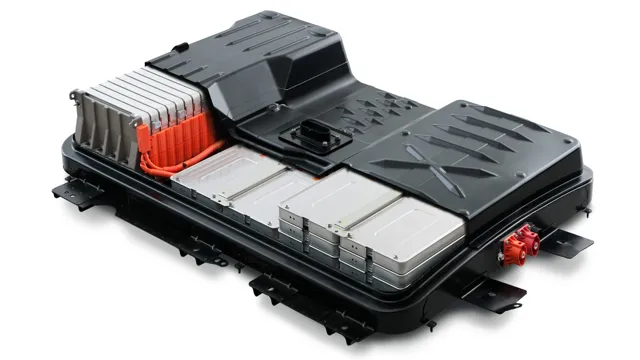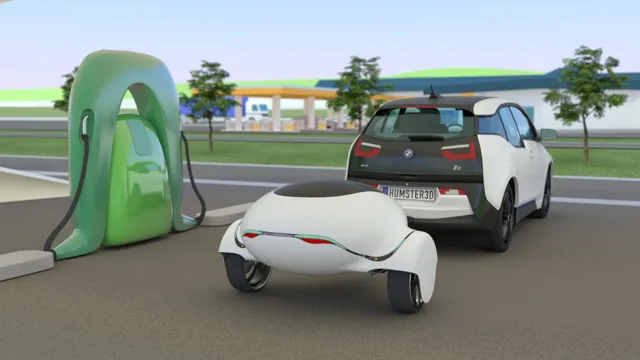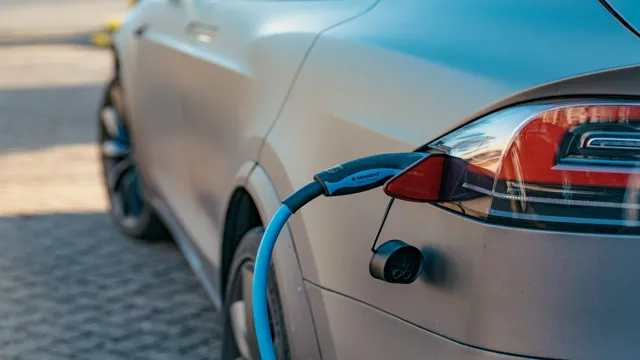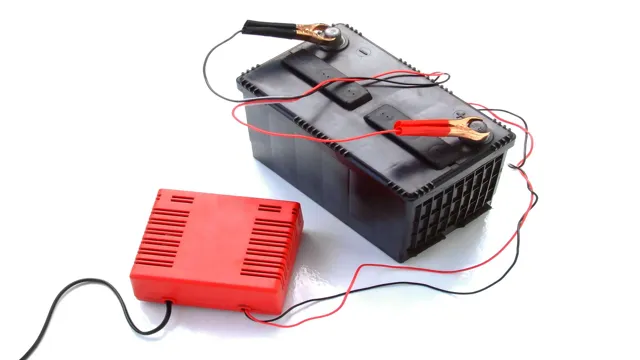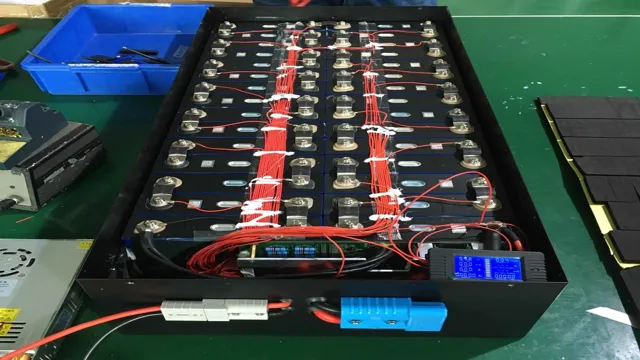Revolutionizing Indian Roads: The Rise of Batteries in Electric Cars
Electric vehicles or EVs have been generating a buzz in India, with car buyers being more keen than ever to make the switch to this environmentally-friendly solution for transportation. While EVs come with their own set of advantages, including zero emissions and lower fuel costs, one of the key areas of concern for buyers is their battery life and performance. This is where battery tech in Indian electric cars comes into play.
As the demand for EVs increases, car manufacturers in India are also focusing their efforts on developing advanced battery technologies that can improve the range and performance of EVs, making them more practical and user-friendly for Indian consumers. From lithium-ion to solid-state battery tech, the future of EVs in India looks promising. In this blog, we’ll take a closer look at the developments in battery tech for Indian electric cars, how it affects the performance and efficiency of EVs, and what we can expect from the market in the coming years.
So gear up and join us on this exciting journey to explore the future of electric vehicles in India with a focus on battery technology.
Current Battery Types in India
In India, the most commonly used battery in electric cars is Lithium-ion battery. These batteries are widely available in India and have been acknowledged as a reliable energy source for electric cars. The lithium-ion battery pack consists of small cylindrical cells which have high energy density and can store a large amount of energy.
Lithium-ion batteries are also lightweight and have a long lifespan. Moreover, they are eco-friendly and do not require much maintenance. Other battery types used in electric cars in India include Nickel-Metal Hydride (NiMH) and Lead-Acid batteries.
However, these battery types have several limitations, including low energy density, heavy weight, and short lifespan as compared to Lithium-ion batteries. Therefore, Lithium-ion batteries remain the best choice for manufacturers and consumers alike.
Lithium-Ion Batteries
Lithium-Ion Batteries Currently, there are various types of batteries used in India, including lead-acid, nickel-cadmium, and lithium-ion batteries. However, lithium-ion batteries are becoming more popular due to their efficiency and reliability compared to the traditional lead-acid batteries. Lithium-ion batteries provide greater storage capacity and have a longer lifespan, ensuring they are a valuable investment for consumers who rely on battery power to keep their devices running.
With the growth of electric vehicles and renewable energy sources, the demand for lithium-ion batteries is expected to increase in the coming years. While they are more expensive, the long-term benefits make them a worthwhile investment for businesses and individuals alike. Furthermore, companies like Tesla and Panasonic are continuously working towards improving lithium-ion battery technology, which will unlock more potential applications in different industries.
As a result, it’s essential to keep an eye out for advancements in lithium-ion technology as it could significantly impact the way we use energy in the future.
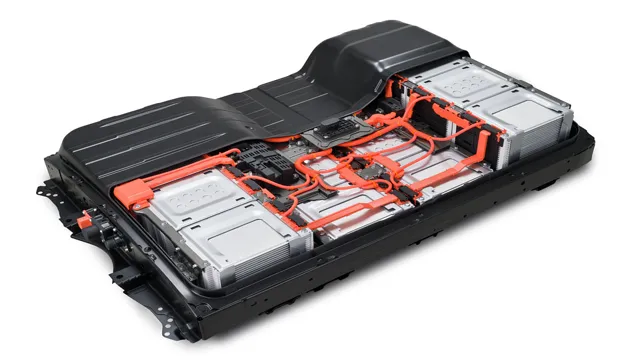
Lead-Acid Batteries
Lead-Acid Batteries When it comes to current battery types in India, lead-acid batteries are still one of the most widely used. These batteries have been around for over a century and are found in a variety of applications, from automotive to industrial use. Lead-acid batteries work by converting chemical energy into electrical energy, using lead plates and an electrolyte solution.
While there are newer and more advanced battery technologies available today, lead-acid batteries are still popular due to their affordability and reliability. They are also highly recyclable, with over 99% of the lead used in these batteries being recovered and reused. However, lead-acid batteries do have some drawbacks, including their size, weight, and low energy density compared to newer battery technologies.
As a result, many experts predict that newer battery technologies, such as lithium-ion batteries, will eventually replace lead-acid batteries in the near future.
Factors to Consider When Choosing the Right Battery
When it comes to choosing the right battery for your electric car in India, there are a few factors you need to consider. First and foremost, you need to think about the battery’s capacity. This refers to how much energy it can store, and it’s measured in kilowatt-hours (kWh).
The higher the capacity, the longer the range of your car will be. You’ll also want to consider the battery’s efficiency, as this will impact how much energy is needed to power your car. Other important factors to think about include the battery’s weight, size, and cost.
Ultimately, the right battery for your electric car will depend on your specific needs and budget. It’s important to do your research and consult with experts to ensure you make the best decision for your situation.
Range and Capacity
When it comes to choosing the right battery, two major factors you should consider are range and capacity. Range refers to how far the battery can take you on a single charge, and capacity refers to how much energy the battery can store. These two factors are very important as they can greatly affect the overall performance of your device.
For instance, if you plan on using your mobile phone for work or play, you will want a battery with a high capacity to power all your apps and tasks effectively. On the other hand, if you plan on using an electric car for commuting, you will want a battery with a high range to get you where you need to go without worrying about running out of power. So, when choosing the right battery, it’s important to consider your specific needs and how much you’re willing to spend to get the performance you require.
Charging Time
When selecting the ideal battery for your needs, several factors need to be considered. One of the crucial factors is charging time. Depending on your specific requirement, battery charging time can be the difference between optimal performance and poor battery life.
If you need a battery that charges quickly so you can get back to work, opt for a lithium-ion battery. They have a fast charging time and are perfect for mobile devices like smartphones. On the other hand, if you need a battery that provides long-lasting power, a nickel-metal hybrid battery may be the right choice.
These batteries take longer to charge but provide significant amounts of power once fully charged. Similarly, the type of charger you use can influence charging time. Fast chargers are designed to charge quickly, but they can significantly affect battery life.
Opting for a charger compatible with your battery’s chemistry can reduce charging time and prolong battery life. In summary, consider your specific requirements and choose a battery with the right charging time and use the appropriate charger to maximize the battery’s performance.
Cost
Cost When searching for the right battery, cost is undoubtedly a major factor to consider. However, it’s important to remember that cheapest isn’t always best. You need to balance the cost against other important criteria like the battery’s performance, lifespan, and safety.
It’s also worth considering the long-term cost of the battery too. While a cheaper option might be attractive in the short-term, it may not last as long or provide the performance you need, meaning you’ll end up spending more money in the long run. It’s essential to assess each battery’s cost with a consideration of the bigger picture, ensuring you’re choosing a cost-effective solution that meets all your needs.
Maintenance Requirements
When choosing the right battery, it’s important to consider the maintenance requirements. One of the biggest factors to keep in mind is how often the battery needs to be charged. If you don’t have access to a charging station or if you need a battery with a long lifespan, then you might want to consider a sealed or maintenance-free battery.
These types of batteries have a special design that eliminates the need for regular maintenance, such as topping off the electrolyte or checking the specific gravity. Another important factor to consider is the size and weight of the battery. If you need a battery that is lightweight and easy to transport, then you might want to look for a lithium-ion battery.
These batteries are known for their high energy density and long lifespan, making them ideal for portable applications. By considering these factors, you can choose the right battery that meets your specific needs and requirements.
Future of Battery Tech in India
When it comes to the future of electric cars in India, the battery technology will play a crucial role in its success. Currently, the batteries used in electric cars in India are mostly imported, which increases the cost of the vehicles. However, there are significant efforts being made by the Indian government and private sector to develop indigenous battery technologies that will help reduce the cost and dependency on foreign imports.
The Indian government is providing subsidies and incentives to encourage researchers and companies to work towards developing advanced batteries that are cheaper and more efficient. One promising technology being developed is the lithium-ion battery, which is known for its high energy density, longer lifespan, and faster charging times. With the increased focus on battery technology in India, we can expect to see a rise in the number of electric cars on Indian roads in the near future, making it a more accessible and sustainable mode of transportation.
Advancements in Battery Technology
The advancements in battery technology have been a major game-changer over the past decade. With the demand for clean energy on the rise, battery technology has become paramount in ensuring the sustainability and viability of renewable energy. In India, the future looks bright as the country is aggressively investing in this technology.
Currently, India is the third-largest global market for batteries, particularly solar energy storage. Additionally, there has been an emphasis on developing indigenously produced lithium-ion batteries in the country. This is significant as it reduces dependence on imports and strengthens India’s position in the global clean energy market.
As India continues to transition towards clean energy, battery technology will play a crucial role in ensuring the success of this transition.
Impact on Electric Vehicle Market
The rapid advancement in battery technology is undoubtedly having a significant impact on the electric vehicle market. As the world continues its shift towards renewable energy and zero-emission vehicles, battery technology plays a pivotal role in realizing this dream. India is no exception as the country aims to become one of the largest EV markets in the world.
The future of battery tech in India looks bright with companies investing heavily in research and development. With advancements in battery technology, Indian consumers can expect electric vehicles with longer ranges, faster charging, and improved safety features. This will also pave the way for the widespread adoption of EVs, making it more accessible to everyone.
However, battery performance is not the only factor that will drive the EV market, and policies aimed at supporting investment in infrastructure and incentives for consumers will undoubtedly boost demand. It is also important to note that the EV market is still in its early stages in India, and there is a need for a considerable push to accelerate adoption. Despite the challenges, the future looks promising for electric vehicles in India, and battery technology will play an essential role in shaping the market.
Conclusion
In conclusion, the battery used in electric cars in India is not your average Duracell or Energizer. It’s a high-tech power source that helps drive the country toward a cleaner, more sustainable future. With advancements in technology, these batteries are becoming more efficient and longer lasting, making electric cars a viable option for many Indians.
So, don’t be shocked when you see more and more electric cars on the road – they may be running on batteries, but they’re also powering a brighter tomorrow.”
FAQs
What type of battery is commonly used in electric cars in India?
Lithium-ion batteries are commonly used in electric cars in India, as they offer a high energy density and longer lifespan compared to other battery types.
How long does it take to charge an electric car battery in India?
The charging time for an electric car battery in India will depend on the battery size and the charging station used. Generally, it can take anywhere from 30 minutes to several hours to fully charge an electric car battery.
What is the average range of an electric car battery in India?
The range of an electric car battery in India will depend on the car model and the battery size. On average, electric cars in India have a range of between 200-300 kilometers on a full charge.
What is the cost of replacing an electric car battery in India?
The cost of replacing an electric car battery in India will vary depending on the car model and the battery size. Generally, the cost of replacing a battery can range from several thousand to tens of thousands of rupees. It is important to note that most electric car batteries come with a warranty period and may be covered under the car’s warranty.
